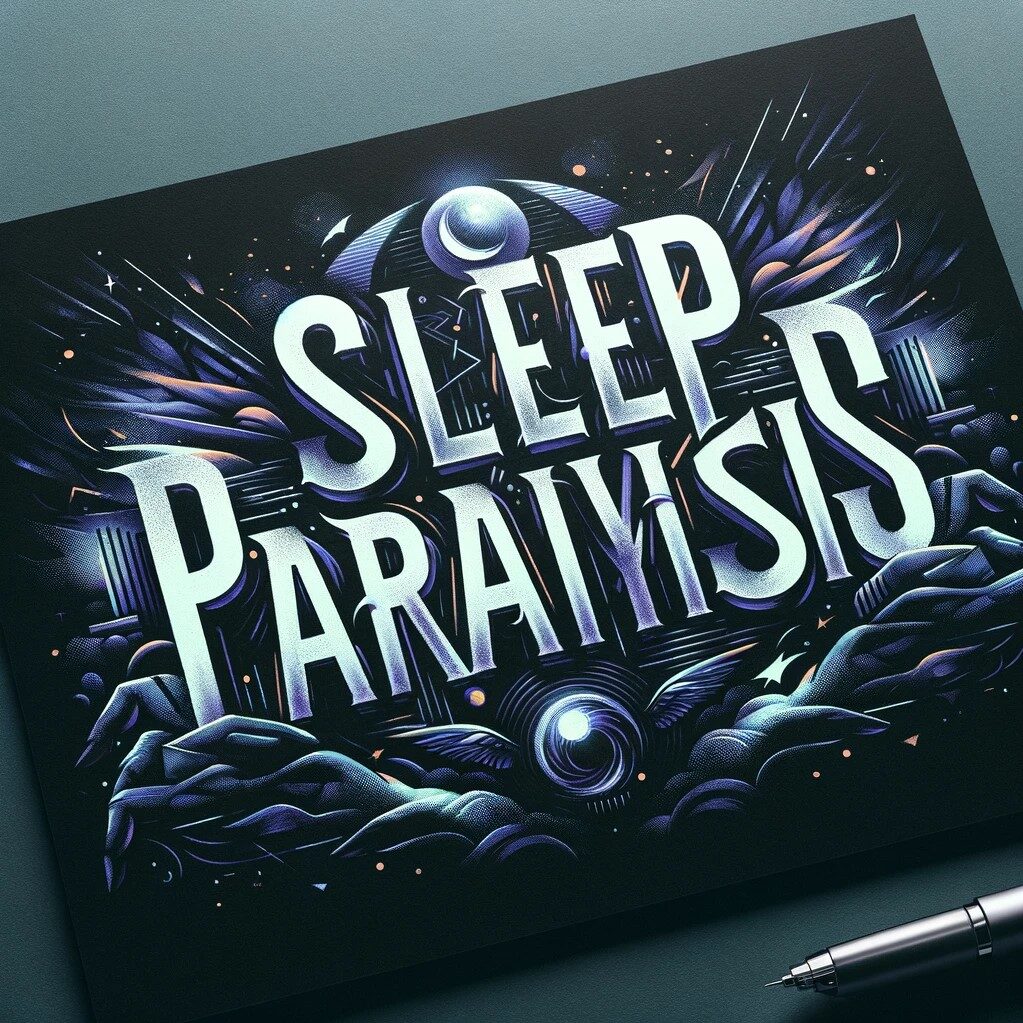Have you ever experienced the terrifying sensation of being unable to move or speak while waking up? This phenomenon, known as sleep paralysis, affects many individuals and is characterized by a temporary paralysis of the body that occurs during the transition between sleep and wakefulness. Interestingly, recent studies have found a potential correlation between caffeine consumption and the occurrence of sleep paralysis. In this article, we will explore how caffeine, a commonly consumed stimulant, can impact the frequency and intensity of sleep paralysis episodes. Understanding this relationship may provide insights into managing this unsettling experience and promoting better sleep hygiene.

Definition of Sleep Paralysis
Sleep paralysis is a phenomenon where an individual is temporarily unable to move or speak while falling asleep or waking up. It is characterized by a feeling of being awake but unable to move or communicate. Sleep paralysis can be a frightening experience, as individuals often report hallucinations and a sense of pressure on their chest.
Description of Sleep Paralysis
During sleep paralysis, your mind is conscious, but your body is paralyzed. It usually occurs during the transition between wakefulness and sleep, known as hypnagogic or hypnopompic states. This state of paralysis is a natural mechanism that prevents us from physically acting out our dreams during rapid eye movement (REM) sleep.
Causes of Sleep Paralysis
Sleep paralysis can occur due to a variety of factors. Sleep disorders such as narcolepsy, insomnia, and sleep apnea have been associated with an increased likelihood of experiencing sleep paralysis. Other contributing factors may include irregular sleep schedules, sleep deprivation, stress, and certain medications.
Symptoms and Experiences during Sleep Paralysis
During sleep paralysis, you may experience a range of sensations and hallucinations. Common symptoms include a sense of immobility, a feeling of pressure or weight on the chest, difficulty breathing, and a sense of fear or impending doom. Many individuals also report hallucinations, often of shadowy figures or supernatural entities. These experiences can be distressing and may contribute to feelings of anxiety or panic.
Effects of Caffeine on Sleep
Caffeine is a well-known stimulant that is commonly consumed in the form of coffee, tea, energy drinks, and certain foods. Its stimulating properties make it a widely used substance to help increase alertness and combat sleepiness. However, its consumption can have significant effects on sleep quality and duration.
Stimulant Properties of Caffeine
Caffeine works by blocking the effects of adenosine, a neurotransmitter that promotes sleep and relaxation. By inhibiting adenosine, caffeine increases brain activity and promotes wakefulness. This stimulation can lead to increased alertness, improved cognitive performance, and a reduction in drowsiness.
Impact of Caffeine on Sleep Quality
While caffeine can help you stay awake and alert during the day, it can significantly disrupt your sleep quality. Studies have shown that caffeine consumption, especially close to bedtime, can delay the onset of sleep and reduce the total amount of sleep obtained. This can result in fragmented and less restorative sleep, leading to daytime sleepiness and impaired cognitive function.
Caffeine’s Half-Life and its Influence on Sleep Duration
Caffeine has a half-life of approximately 5 to 6 hours, which means that it takes this amount of time for the body to eliminate half of the ingested caffeine. However, individual variations in caffeine metabolism can affect its duration of action. If consumed too close to bedtime, caffeine may still be active in your system and can hinder your ability to fall asleep and maintain a deep sleep throughout the night.
Caffeine’s Impact on Sleep Stages
Research has shown that caffeine intake can disrupt the normal sleep architecture by decreasing the amount of slow-wave sleep (SWS) and rapid eye movement (REM) sleep. SWS is the deepest stage of sleep, essential for physical restoration and memory consolidation. Similarly, REM sleep is crucial for cognitive functioning, emotion regulation, and dreaming. Caffeine’s interference with these sleep stages can impact overall sleep quality and potentially contribute to sleep paralysis.
Understanding Sleep Paralysis
While the exact mechanisms behind sleep paralysis are not fully understood, researchers have identified potential links between caffeine consumption and the occurrence of sleep paralysis episodes.
Potential Link between Caffeine and Sleep Paralysis
Some studies suggest that caffeine may increase the likelihood of experiencing sleep paralysis. Caffeine’s stimulant properties have been hypothesized to disrupt the normal sleep architecture and potentially trigger sleep paralysis episodes. However, the relationship between caffeine consumption and sleep paralysis is complex and requires further investigation.
Mechanisms of Sleep Paralysis
Sleep paralysis is thought to occur when there is a temporary mismatch between the brain’s wakefulness and sleep systems. Normally, during the REM stage of sleep, the brain sends signals to inhibit muscle movement to prevent us from acting out our dreams. However, in sleep paralysis, these signals persist, leaving the individual paralyzed temporarily upon waking up or falling asleep.
Role of Neurotransmitters in Sleep Paralysis
Neurotransmitters such as serotonin and dopamine play a role in regulating sleep-wake cycles and muscle movements. Imbalances or dysfunctions in these neurotransmitter systems may contribute to the occurrence of sleep paralysis. Caffeine’s influence on these neurotransmitters and their receptors may potentially contribute to the development or exacerbation of sleep paralysis.
Factors Contributing to Sleep Paralysis
Apart from caffeine consumption, several other factors may contribute to the occurrence of sleep paralysis. Sleep deprivation, irregular sleep schedules, stress, anxiety, and certain medications have been associated with an increased risk of experiencing sleep paralysis. It is essential to consider these factors holistically when examining the relationship between caffeine and sleep paralysis.
Research on Caffeine Consumption and Sleep Paralysis
Several research studies have explored the potential connection between caffeine consumption and sleep paralysis. However, the existing literature has produced mixed results, and further investigation is needed to draw definitive conclusions.
Existing Studies Exploring the Caffeine-Sleep Paralysis Connection
Some studies have reported a positive association between caffeine consumption and the occurrence of sleep paralysis episodes. These studies have found that individuals who regularly consume high amounts of caffeine are more likely to experience sleep paralysis compared to those with lower caffeine intake. However, other studies have not found a significant relationship.
Correlation versus Causation in Caffeine-Sleep Paralysis Relationship
It is important to note that the correlation between caffeine consumption and sleep paralysis does not necessarily imply causation. While some studies have observed an association between the two, it remains unclear whether caffeine directly triggers sleep paralysis or if other underlying factors contribute to this relationship.
Methodologies and Limitations of Previous Studies
Research in this area is still in its early stages, and certain limitations need to be considered. Previous studies have often relied on self-reported data, which may be subject to recall bias and individual interpretation. Additionally, factors such as caffeine metabolism, dosage, and timing of consumption have varied across studies, making it difficult to compare results consistently.

Caffeine Consumption and Sleep Paralysis: The Debate
The relationship between caffeine consumption and sleep paralysis remains a topic of debate among researchers and experts in the field. While some argue that caffeine can increase the likelihood of experiencing sleep paralysis, others contend that the evidence is not sufficient to make such conclusions.
Conflicting Findings and Opinions among Researchers
Researchers have put forth different hypotheses and interpretations regarding the potential link between caffeine and sleep paralysis. Some propose that caffeine’s stimulant properties may disrupt the normal sleep-wake cycle, leading to an increased risk of sleep paralysis. However, others argue that the relationship may be more complex, involving various physiological and psychological factors.
Opposing Perspectives on the Caffeine-Sleep Paralysis Relationship
Some experts assert that caffeine’s influence on neurotransmitter systems and sleep architecture can contribute to sleep paralysis. They suggest that reducing or eliminating caffeine intake may decrease the frequency and severity of sleep paralysis episodes. Conversely, others argue that controlling caffeine consumption alone may not alleviate sleep paralysis symptoms, as multiple factors can influence its occurrence.
Debunking Common Misconceptions and Myths
Amidst the ongoing debate, it is important to address common misconceptions and myths surrounding caffeine consumption and sleep paralysis. While caffeine may exacerbate sleep-related issues, it is crucial to recognize that sleep paralysis is a complex phenomenon influenced by various factors, including but not limited to caffeine intake.
Individual Variations and Susceptibility
The relationship between caffeine consumption and sleep paralysis may be influenced by individual variations and susceptibilities. Factors such as caffeine sensitivity, genetic predispositions, and physiological differences can contribute to the variability in how individuals respond to caffeine intake and its potential impact on sleep paralysis.
Interplay Between Caffeine Sensitivity and Sleep Paralysis Likelihood
Some individuals may have a greater sensitivity to caffeine’s effects, experiencing heightened arousal, and sleep disturbances even at comparatively lower doses. It is plausible that these individuals may be more susceptible to sleep paralysis episodes triggered by caffeine intake. However, further research is needed to delineate the exact interplay between caffeine sensitivity and sleep paralysis likelihood.
Variability in Individuals’ Responses to Caffeine Intake
Individual responses to caffeine can vary widely. Genetics, age, overall health, and tolerance levels can all influence how a person processes and reacts to caffeine. Therefore, while some individuals may experience sleep disturbances and an increased risk of sleep paralysis with moderate caffeine intake, others may not be as affected.
Genetic and Physiological Factors Influencing Susceptibility to Sleep Paralysis
Research has suggested that certain genetic and physiological factors may contribute to an individual’s susceptibility to sleep paralysis. Variations in neurotransmitter genes, sleep architecture, and sleep disorders can influence an individual’s risk of experiencing sleep paralysis. The interaction between these factors and caffeine consumption requires further investigation to gain a deeper understanding.
Practical Tips for Managing Sleep Paralysis and Caffeine Consumption
For those dealing with sleep paralysis and seeking to manage their caffeine consumption, here are some practical tips to consider:
Moderation and Timing of Caffeine Intake
Moderation is key when it comes to caffeine consumption. Limiting your caffeine intake to earlier parts of the day can help minimize its potential impact on sleep. Additionally, be mindful of the specific sources of caffeine in your diet and consider gradually reducing your intake if you notice an association between caffeine consumption and sleep paralysis episodes.
Importance of Sleep Hygiene Practices
Establishing good sleep hygiene practices can improve overall sleep quality and potentially reduce the occurrence of sleep paralysis episodes. This includes maintaining a consistent sleep schedule, creating a relaxing bedtime routine, optimizing your sleep environment, and incorporating relaxation techniques before sleep.
Alternative Strategies to Reduce Sleep Paralysis Frequency
In addition to managing caffeine consumption, there are other strategies individuals can employ to reduce the frequency of sleep paralysis episodes. Stress reduction techniques, cognitive-behavioral therapy for sleep, and maintaining a healthy lifestyle can all contribute to better sleep and potentially mitigate the occurrence of sleep paralysis.
Seeking Professional Help
If you are experiencing frequent or distressing sleep paralysis episodes, it is important to consult healthcare professionals for diagnosis and guidance. They can help determine the underlying cause of your sleep paralysis and provide appropriate treatment recommendations.
Consulting Healthcare Professionals for Sleep Paralysis and Caffeine-Related Concerns
Sleep specialists, neurologists, or psychiatrists with expertise in sleep disorders can provide valuable insights and guidance. They may conduct a thorough evaluation of your sleep patterns, medical history, and lifestyle factors to determine the most appropriate course of action.
Importance of Professional Diagnosis and Guidance
Obtaining a professional diagnosis is crucial to rule out any underlying sleep disorders or medical conditions that may contribute to your sleep paralysis. A comprehensive evaluation can help tailor the treatment approach and provide you with the necessary support and resources.
Treatment Options for Sleep Paralysis
Treatment for sleep paralysis varies based on the individual’s specific case and underlying factors. Potential strategies may include addressing sleep disorders, implementing sleep hygiene practices, managing stress levels, and, in some cases, the use of medications. A healthcare professional can guide you through the available options and help determine the most suitable treatment plan for you.
Personal Experiences: Perspectives from Those Affected
Gaining insights from individuals who have experienced sleep paralysis can provide valuable perspectives on managing the condition and its potential relationship with caffeine consumption. Personal experiences can help shed light on coping mechanisms and strategies that have worked for others.
Compilation of Firsthand Accounts Dealing with Caffeine and Sleep Paralysis
Through sharing their experiences, individuals affected by sleep paralysis can offer unique insights into managing the condition alongside managing caffeine intake. Their firsthand accounts may highlight both the challenges and successes they have encountered, providing a sense of solidarity and community for those dealing with similar issues.
Shared Experiences, Coping Mechanisms, and Advice
Personal experiences can offer coping mechanisms and advice that have helped individuals navigate their sleep paralysis journey. These insights may include methods for reducing caffeine consumption, relaxation techniques, stress management strategies, or other lifestyle changes that have positively influenced their experiences with sleep paralysis.
Future Directions and Research Areas
The complexity of the caffeine-sleep paralysis relationship calls for further research to fill existing knowledge gaps and explore promising avenues of investigation.
Identifying Knowledge Gaps and Areas for Further Exploration
Future research should aim to better understand the underlying mechanisms by which caffeine consumption may influence sleep paralysis. Investigating the specific neurotransmitter systems involved, the interplay of genetic and physiological factors, and the potential interaction with other substances can contribute to a more comprehensive understanding of this relationship.
Potential Research Approaches and Methodologies
Combining various research methodologies, including observational studies, controlled experiments, and longitudinal investigations, can provide a holistic view of the caffeine-sleep paralysis connection. Utilizing neuroimaging techniques, genetic analyses, and objective measures of sleep quality can help shed light on the intricate mechanisms at play.
Investigating Other Substances’ Impact on Sleep Paralysis
While caffeine has been a primary focus in examining the relationship with sleep paralysis, other substances, such as nicotine or certain medications, may also warrant investigation. Exploring the potential role of these substances in sleep paralysis can contribute to a more comprehensive understanding of its triggers and underlying mechanisms.
In conclusion, the relationship between caffeine consumption and sleep paralysis is a complex and evolving topic. While evidence suggests a potential association between the two, further research is needed to fully understand the underlying mechanisms and establish definitive conclusions. It is important to consider individual variations in response to caffeine, as well as the multifaceted nature of sleep paralysis, when exploring this relationship. Seeking professional guidance and adopting healthy sleep hygiene practices can aid in managing sleep paralysis and optimizing overall sleep quality.
